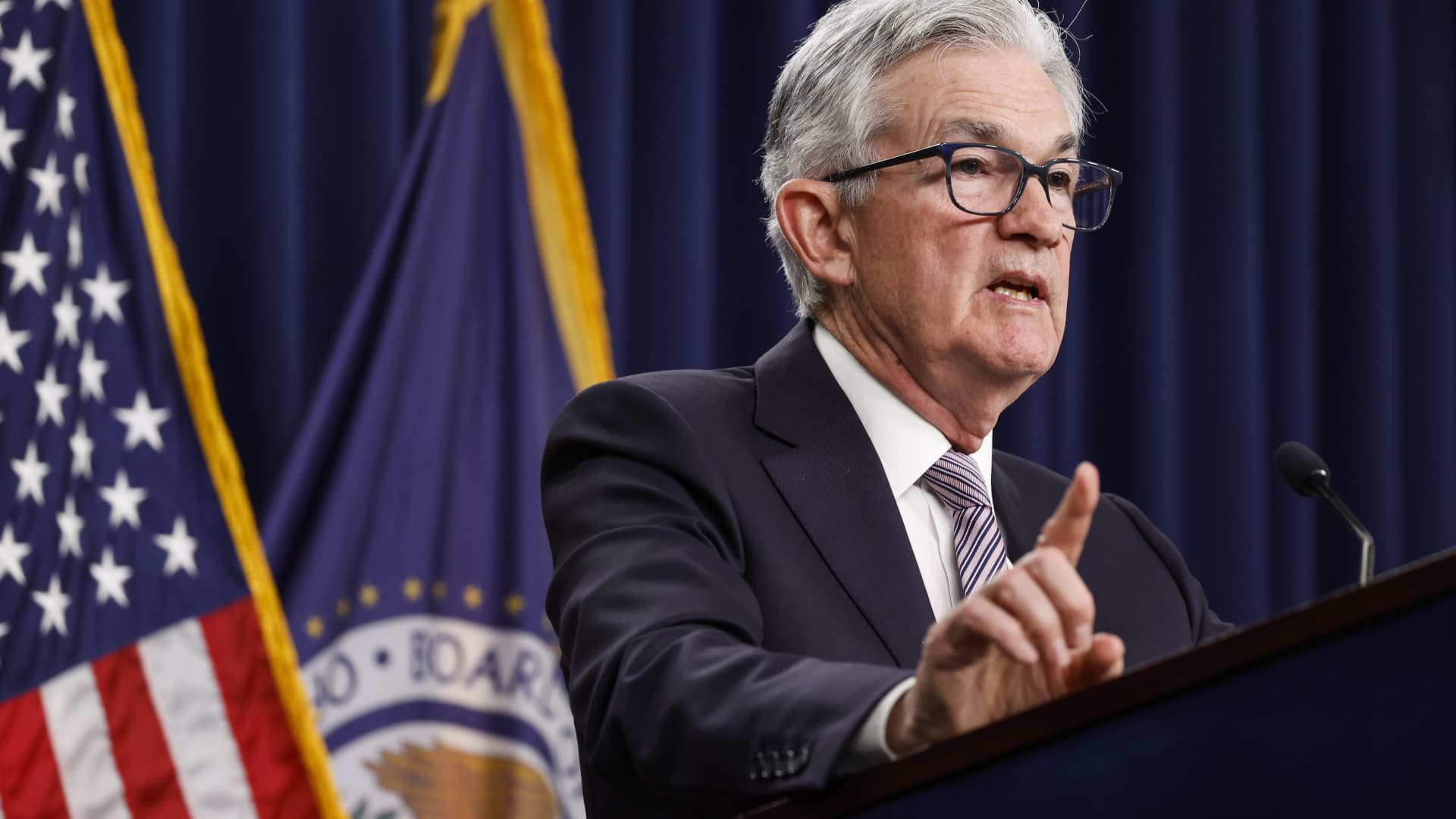Products You May Like
The Federal Reserve paused its hiking campaign in June, but forecast it will raise interest rates as high as 5.6% before 2023 is over, according to the central bank’s projections released on Wednesday.
The Fed on Wednesday kept the key borrowing rate in a target range of 5%-5.25%. But it was its projections, the so-called dot-plot, that moved markets, sending them lower as the central bank projected two more increases. That’s if the central bank keeps its rate-hiking pace at quarter-point increments.
related investing news
Fed Chairman Jerome Powell said the next gathering for the committee in July remains a “live” meeting, signaling that a quarter-point hike isn’t baked in yet.
“We didn’t we didn’t make a decision about July I mean, of course it came up in the in the meeting from time to time, but really the focus was on what to do today,” Powell said in a press conference Wednesday. “I would say about eventual like two things one decision hasn’t been made to I do expect that it will be a live meeting.”
Here are the Fed’s latest targets:
Eighteen members of the Federal Open Market Committee indicated their expectations for rates in 2023 and further out in the dot plot. Four members saw one more rate increase this year and nine expect two. Two more members added a third hike while one saw four more. Only two members signaled that they don’t see more hikes this year.
The central bank also hiked their forecasts for the next two years, now projecting a fed funds rate of 4.6% in 2024 and 3.4% in 2025. That’s up from respective forecasts of 4.3% and 3.1% previously.
Meanwhile, Fed members raised their expectations for economic growth. The Summary of Economic Projections now shows a 1% expected gain in GDP as compared to the 0.4% estimate in March.
Officials also were more optimistic about unemployment, now seeing a 4.1% rate by year’s end compared to 4.5% in March.
On inflation, the central bank raised its forecast to 3.9% for core (excluding food and energy) and lowered it slightly to 3.2% for headline. Those numbers had been 3.6% and 3.3% respectively for the personal consumption expenditures price index, the central bank’s preferred inflation gauge.
— CNBC’s Jeff Cox contributed reporting.


